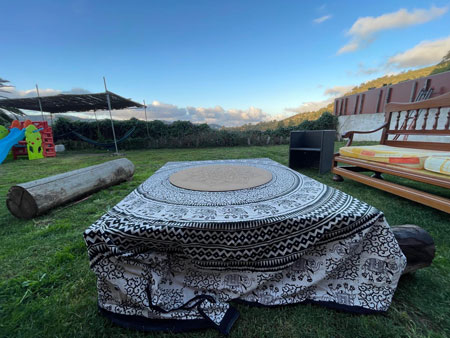
In a world full of information and constant noise, silent retreats offer a unique opportunity to disconnect, calm the mind, and connect with inner wisdom. These retreats create a sacred space for introspection, meditation, and self-discovery.
Why Choose a Silent Retreat?
Silent retreats allow us to escape the constant external dialogue, reduce stress and anxiety, and cultivate mental clarity. By immersing ourselves in silence, we can listen to our inner voice, find answers to our deepest questions, and experience greater peace and serenity.
Benefits of a Silent Retreat:
- Reduction of stress and anxiety.
- Cultivation of mental calm and clarity.
- Improved concentration and attention.
- Deepening the connection with oneself.
- Development of intuition and inner wisdom.
- Experience of deep peace and serenity.
- Disconnecting from external noise.
What to Expect from a Silent Retreat?
Silent retreats often include extended periods of silence, guided meditation sessions, mindfulness practices, teachings on the philosophy of silence, and time for personal reflection and journaling.
Common Activities in a Retreat:
- Extended periods of silence (sometimes full days).
- Daily guided meditation sessions.
- Mindfulness and awareness practices.
- Teachings on the philosophy of silence and introspection.
- Time for personal reflection and writing (optional).
- Meditative walks in nature and mindful movement.
- Channeling.
- Innerdance sessions.
How to Prepare for Your Silent Retreat
Before your retreat, it is important to prepare mentally and emotionally. Reduce caffeine and alcohol consumption, get ready to disconnect from technology, and set your intentions for the retreat (if you want to reflect on it beforehand; if not, there will be enough time at the beginning of the retreat).
Tips to Prepare:
- Reduce caffeine and alcohol consumption.
- Prepare your mind to disconnect from technology.
- Set your intentions for the retreat (optional).
- Pack comfortable clothing suitable for meditation and silence.
- Be ready to experience unexpected emotions and thoughts.
- Come with an open heart.
Choosing the Right Silent Retreat for You
When choosing a retreat, consider your level of experience in meditation and silence, the duration of the retreat, the location and environment, and reviews from other participants.
Factors to Consider When Choosing a Retreat:
- Level of experience in meditation and silence.
- Duration of the retreat (days, weeks).
- Retreat location and environment.
- Reviews from other participants.
- Price and type of retreat.
Integrating the Benefits of the Retreat into Your Daily Life
After the retreat, it is important to integrate the benefits into your daily life. Establish a daily meditation practice, practice mindfulness in your everyday activities, and set aside time for silence and introspection.
Silent retreats are an opportunity to disconnect from external noise, quiet the mind, and connect with inner wisdom. By immersing ourselves in silence, we can transform our lives and experience greater peace, clarity, and fulfillment.
FAQ: Common Questions About Silent Retreats and Inner Stillness
What is a silent retreat exactly?
A silent retreat is a guided experience where participants commit to periods of silence to quiet the mind, turn inward, and connect with their inner wisdom. It offers space for deep healing and self-discovery.
Do I need prior meditation experience?
Not at all. Silent retreats are open to everyone. The most important thing is your openness and willingness to be present with yourself in stillness.
What if strong emotions arise during silence?
That’s completely natural. Silence often brings repressed emotions to the surface. Many retreats provide gentle guidance or emotional support to help process what comes up.
